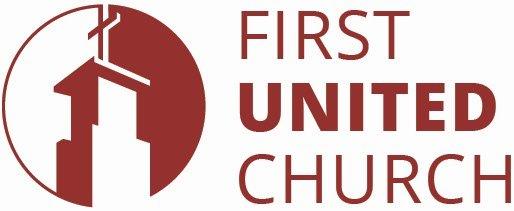Reflection Gratitude – Rev. Rebecca Hoke-McCall
Since this was the last Sunday for me to lead worship and offer a sermon, I would like to express my gratitude for the opportunity to serve as guest minister. It has been an honor to fill in for Jessica and to become better acquainted with many of you. My gratefulness for this church and for the encouragement I received is beyond measure. And this brought to mind the idea of gratitude as a spiritual discipline and a way to be mindful of the gifts we enjoy day by day. It’s so easy to fall into patterns of not noticing and of taking for granted, so I wanted to reflect for a moment on gratitude.
The great Sufi mystic, Rumi, said we are guests on this great, good earth, and our every breath should be one of gratitude to the Creator, our host. And Meister Eckhart, a Christian mystic, said, if the only prayer you say in your whole life is “thank you,” that would suffice.
That gratitude can begin with our bodies, with each breath. The intricacies of our composition boggle the mind. The body heals itself – when you get a cut, it heals! Isn’t that astonishing? We eat food and it digests. Our hearts beat and blood circulates throughout our bodies, nourishing every cell and carrying away waste. Our senses experience the world. Our bodies communicate with other bodies. How amazing!
Think of the places we live. Have we honored the place where we live? Have we expressed appreciation for its shelter and warmth…for those who lived there before…acknowledging that when we leave we’ll take a part of that home with us and leave a part of ourselves there?
And speaking of sacred space, think of this larger dwelling place – the earth. When was the last time you looked at a gorgeous sunset and whispered, thank you, God? Or walked into the woods and just soaked up the sounds and smells and sights of that beauty, and thought of its Creator with a smile of appreciation? And animals…if any of you have pets, you of course know that animals have personalities and souls. Think how much they add to our lives. But the rest of the world’s creatures as well are connected with us and deserve our gratitude and care.
So often we say people are more important than things, and I often get on a soapbox about consumerism and materialism. And yet, things have their place. What about items from your childhood that held special meaning for you? What are some prized possessions that were handmade for you, or given to you by someone else, or belonged to someone else? Ponder the special feelings or memories these things elicit. What things do you want people to have as remembrances from you? Think of your possessions as special gifts embodied somehow with the presence of God – and give thanks.
Celtic Christianity could be a powerful teacher in the art of gratitude because of how prayers of thanks and acknowledgment of God were such natural and integral part of life. From milking cows to starting a fire, from dressing in the morning to tending crops, prayers expressed an awareness that God was intimately present in each act and in everything. Likewise, perhaps we could practice awareness of God’s presence in our things and in our actions. Even machinery and appliances and such. If God is this underlying source of life energy, a power that imbues creation with power, then reflect on the connections with our electronic gadgets. I wonder if some of my frustrations with technology would be assuaged if I regularly expressed gratitude for the mystery of my computer!
Saying grace before meals is one way to express gratitude, but perhaps we could also extend thanksgiving for all involved in bringing food to our tables: plants and animals who lived and died for our sustenance; the field hand who planted and tended and harvested; the factory worker who prepared the packaged product; those at the processing plant where the food was readied for shipping; the truck drivers who brought the food through each phase of its journey, from field to plant to grocery; the stock clerk who put the food on the shelf; the checkout cashier; and so on. Try this experiment and recognize how many outside forces come together to create food for our table and for which we can be grateful.
As we sit down to eat, let us remember with love and compassion others throughout the world who hunger and thirst as we do. Let us remember the God of the Universe at the table with us. And let us further reflect on the value of the food itself, which has healing properties and is able to soothe our souls and lift our spirits. It arouses our sense of sight, smell, and touch. It’s capable of transporting us to the past via memory of a meal, or to another culture by the taste of an unusual taste. It creates fellowship around the table and expresses our caring. And then there is the preparation, a ritual and hands-on art of intuition, tradition, and passion. For me, baking is therapy. Cooking itself can be a spiritual practice.
I’ve barely scratched the surface and your assignment is to carry on. Practice gratitude this week and continue to practice until it becomes second nature. Notice sacred space and time…and say thank you. Notice your toothbrush, your clothing, your pen, all the tools you routinely use… and say thank you. Notice acts of love and respect and caring and courtesy…and say thank you. Look around, be aware…and say thank you. Let our every breath be one of gratitude.

 Follow
Follow